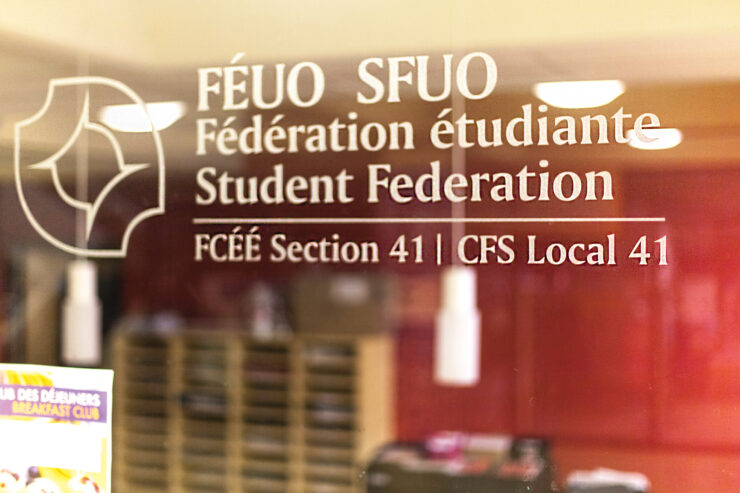The onus is on students to hold student government accountable
Amid all the excitement—or possibly dread—of back to school preparation, something very important may be lost on University of Ottawa students: The Student Federation of the University of Ottawa (SFUO) has released its 2016-17 budget.
While budgets aren’t sexy—although they can contain some nice figures—they’re important. And if we want our student federation to clean up its financial practices and continue to be democratic, awareness of the annual budget is vital.
The recent SFUO cash flow crisis was partly brought on because no one was asking questions about where the money was going. In last year’s final Board of Administration (BOA) meeting, a member complained that the board didn’t have enough time to really study the budget and notice discrepancies. Now, with the online release of the budget, both the board and the student body can refer to it whenever they want.
If you’re a student wondering about the SFUO’s transparency, given accusations at the last BOA meeting, reading this budget is an important way to get some insight into how the student executive works. And if you’re a student who wants to understand the SFUO’s financial practices, then here’s your chance to identify and ask questions about any issues.
“But wait” I hear you say, “I’m a busy student! I have readings, essays, and six seasons of Game of Thrones to deal with. Where do I find the time?”.
Well, you better make time.
Just remember, if you’re a full-time student, you pay the SFUO nearly $200 a year to run itself, and then give them an additional $600 to manage your health plan and U-Pass. Not only that, the SFUO plays a big part in what clubs and services are offered to you as a student, so you might want to understand how they’re using your money.
If nothing else, reading the budget will give you a sense of the scope of the SFUO finances. They may be a student federation, but they are dealing with very significant sums of money. The budget says they will spend over $18 million this year—that alone should motivate you to take a look at the books.
Another issue is that many students don’t have a business background, and may fear they won’t understand the budget. Luckily, this year’s budget is a relatively short PowerPoint—only 34 slides. Each page features clearly marked sections on how much money comes in, how much goes out, and whether the SFUO will be out of pocket or not.
And if the budget does leave you with questions, that’s a good thing. Go seek out the SFUO executive or your BOA representative and ask those questions, and the BOA can bring motions to fix any problems.
If you want to bring those questions up personally, you can do so at the SFUO’s next General Assembly. You can use the budget to create a more informed motion, or you can ask the executives about any issues during question period of the BOA meetings, which are open to the public.
If you don’t fully trust the budget, you have other options as well. In addition to bringing up any issues with an SFUO executive or BOA members, you can read one of the many independent auditor’s reports posted alongside the budget.
Making the budget public at the start of the year is important for the SFUO to make sure its finances are under control. But it means nothing if students don’t read that budget and ask questions. There are many options available for students to voice concerns about finances, but the first step is to actually sit down and read the budget.




